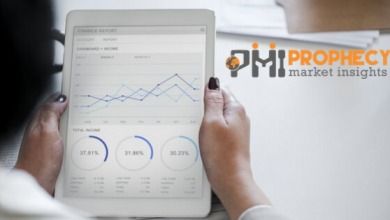China is poised to launch the first national digital currency. There will be no counting the disruption.



That might explain things…
There may soon be serious financial and legal ramifications to the proliferation of deepfake technology. The Wall Street Journal reported last week that a UK energy company’s chief executive was tricked into wiring €200,000 to a Hungarian supplier because he believed his boss was instructing him to do so. Instead, it was a thief using deepfake tech.

Marcos López de Prado has been at the forefront of machine learning innovation in finance. The New-York based Spaniard was the first-ever head of machine learning at AQR, one of the world’s largest investment management firms, before he left earlier this year to start his own firm, which sells machine learning expertise and algorithms to Wall Street.
Science, not speculation, is the right way to invest, a top expert tells TIME.
Jim Mellon, speaking at Master Investor’s Investing in the Age of Longevity 2019 event.
Master Investor is an investment media and events company that delivers independent, financial commentary and analysis to UK private investors and traders through events, magazines, news, blogs, podcasts and daily/weekly newsletters.
Read our latest magazine at www.masterinvestor.co.uk/magazine
Book a free ticket (use code MIYT) to attend the annual Master Investor Show (28th March 2020): https://masterinvestorshow-2020.reg.buzz
Keep in touch:
Newsletter | https://masterinvestor.co.uk/subscribe
Twitter | https://twitter.com/masterinvestor
Facebook | https://facebook.com/masterinvestor
LinkedIn | https://www.linkedin.com/company/masterinvestor

Trusted Business Insights presents the Latest Study on Nanosatellite and Microsatellite Market 2019–2025. The report contains market predictions related to market size, revenue, production, CAGR, Consumption, gross margin, price, and other substantial factors. While emphasizing the key driving and restraining forces for this market, the report also offers a complete study of the future trends and developments of the market. It also examines the role of the leading market players involved in the industry including their corporate overview, financial summary, and SWOT analysis.
Get Sample Copy of this Report @ Global Nanosatellite and Microsatellite Market, Sector / Industry Report & Analysis, 2025
Abstract, snapshot, market analysis & market definition: global nanosatellite and microsatellite market.

Two of SA’s most promising female technology entrepreneurs have this year raised millions from astute local and international investors for their global-impact businesses in healthcare and space.
Presagen, co-founded by Dr Michelle Perugini, raised a total of $4.5 million from Jungle Capital group in Australia and US private investor 3Lines Venture Capital, with the SA Government also pitching in.
The funding will help commercialise its Life Whisperer artificial intelligence (AI) platform. Life Whisperer uses AI to identify healthy embryos in in-vitro fertilisation (IVF) with the aim of improving pregnancy outcomes for infertile couples globally.

Every single member of the UN doubled-down today on a commitment to provide universal health coverage to their citizens. The fact that the US will be among them is perhaps evidence of how disconnected these declarations can be from actual domestic political agendas.
Yet the issue is important, and it shows just how out of line the US approach to health care coverage is compared to the rest of the world. Only about half the world’s population has access to the kind of affordable health care services that don’t require crippling out-of-pocket costs. Most of those people are in mid- and low-income countries. Or they are in the wealthiest country on Earth: the US.
Bringing universal health care to everyone is one of the “sustainable development goals,” the ambitious to-do list for UN member countries to complete by 2030. For the UN, universal health care means, “financial risk protection, access to quality essential health-care services and access to safe, effective, quality and affordable essential medicines and vaccines for all.”
Rejuvenation Biotechnology: on track to be the biggest industry ever.
Dr Aubrey de Grey, CSO at the SENS Research Foundation speaking at Master Investor’s Investing in the Age of Longevity 2019 event. Aubrey discusses Rejuvenation biotechnology and how it’s on track to become the biggest industry ever.
Master Investor is an investment media and events company that delivers independent, financial commentary and analysis to UK private investors and traders through events, magazines, news, blogs, podcasts and daily/weekly newsletters.
Read our latest magazine at www.masterinvestor.co.uk/magazine
Book a free ticket (use code MIYT) to attend the annual Master Investor Show (28th March 2020): https://masterinvestorshow-2020.reg.buzz
Keep in touch:
Newsletter | https://masterinvestor.co.uk/subscribe
Twitter | https://twitter.com/masterinvestor
Facebook | https://facebook.com/masterinvestor
LinkedIn | https://www.linkedin.com/company/masterinvestor
Gene therapies to reverse immunosenescence and atherosclerosis.
CEO of Repair Biotechnologies speaking at Master Investor’s Investing in the Age of Longevity 2019 event. Reason discusses gene therapies to reverse immunosenescence and atherosclerosis.
Master Investor is an investment media and events company that delivers independent, financial commentary and analysis to UK private investors and traders through events, magazines, news, blogs, podcasts and daily/weekly newsletters.
Read our latest magazine at www.masterinvestor.co.uk/magazine
Book a free ticket (use code MIYT) to attend the annual Master Investor Show (28th March 2020): https://masterinvestorshow-2020.reg.buzz
Keep in touch:
The national artificial intelligence strategy, which was unveiled in November, will focus on five key sectors — transport and logistics, smart cities and estates, safety and security, healthcare, and education.
Read the full story: https://www.straitstimes.com/singapore/tapping-ai-to-deliver…ect-issues
Get the latest news updates: http://www.straitstimes.com
Follow The Straits Times online:
Twitter: https://www.twitter.com/STcom
Facebook: https://www.facebook.com/TheStraitsTimes
Instagram: https://www.instagram.com/straits_times/
About The Straits Times:
The Straits Times, the English flagship daily of SPH, has been serving readers for more than a century. Launched on July 15, 1845, its comprehensive coverage of world news, East Asian news, Southeast Asian news, home news, sports news, financial news and lifestyle updates makes The Straits Times the most-read newspaper in Singapore.